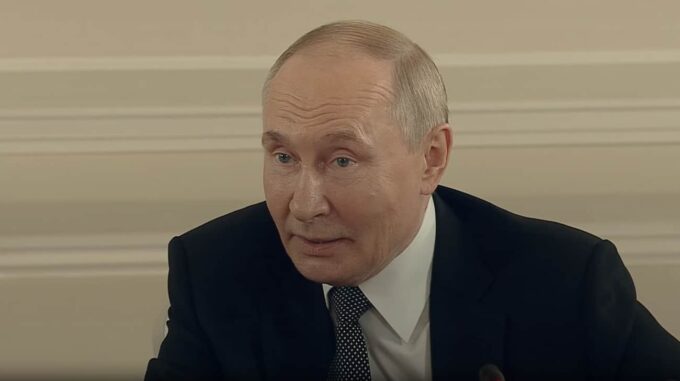Putin Announces Readiness for New Negotiations with Ukraine After June 22: What’s Behind These Statements

In speculative news from the Kremlin, optimistic statements about the possibility of negotiations between Russia and Ukraine have once again emerged. Vladimir Putin, the President of Russia, recently declared that his country supposedly aims for the swiftest possible conclusion to the armed conflict on Ukrainian territory. According to the Russian leader, after the scheduled negotiation days on June 22, the Russian delegation will be prepared for a new meeting with the Ukrainian side to discuss further conditions and possible peace. Putin's statements were made during a meeting with representatives of global news agencies, which is regularly used to disseminate the Kremlin’s official position. In this message, the Russian president emphasized that Moscow supports and prioritizes a peaceful resolution of the conflict, fully striving to reduce tensions and find a diplomatic compromise. Putin also claims that his team maintains close contact with Ukrainian negotiators and that discussions could be resumed soon after the specified deadline — June 22. However, it is worth noting that these words are spoken in the context of a long-standing and tense multifaceted diplomatic game. Vladimir Putin beforehand emphasized that Ukraine should not delay or waste time in starting negotiations. According to him, such a delay could only worsen the situation for Kyiv, which, according to Russian leadership, might lead to even greater difficulties in the future. Additionally, earlier reports indicated that Putin, during a telephone conversation with U.S. President Donald Trump, supposedly informed that Russia is prepared to resume negotiations with Ukraine after June 22. This is confirmed by statements from official Kremlin representatives, including aid to the Russian President, Yuri Ushakov. He stated that during this phone call, Putin assured that Russia would continue the diplomatic path and would gladly participate in new dialogues. Thus, the situation around the potential return to negotiations resembles another wave of diplomatic statements and previous promises. Apparently, both sides seek peace, but they leave their conditions open for further discussion. A significant step was the recent agreement between Ukrainian and Russian delegations on a prisoner exchange. On June 2 in Istanbul, Ukrainian and Russian representatives agreed to carry out another large-scale "all for all" exchange of seriously wounded and young servicemen. This initiative has become an important part of the diplomatic process, bringing closer the possibility of a peaceful resolution to the conflict. Since then, a series of such exchanges has taken place, indicating both sides' willingness to reduce tension and restore dialogue. Overall, recent statements from Moscow essentially reinforce expectations of the possible start of a new phase of negotiations after June. However, many uncertainties and complex questions remain — whether the parties are willing to agree on key conditions, whether new obstacles will appear, and whether diplomacy can overcome the prolonged confrontation. All observers are cautiously monitoring this development, as its outcome will affect not only the region but also global security as a whole.

